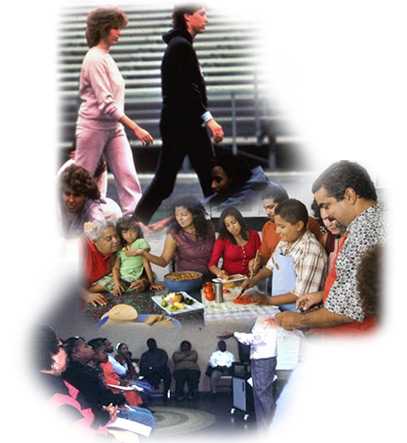Course Overview
| < Back | Next > |
|---|

This course provides state programs and other stakeholders with basic knowledge about Community Health Workers (CHWs), such as official definitions of CHWs, workforce development, and other topic areas. The course also covers how states can become engaged in policy and systems change efforts to establish sustainability for the work of CHWs, including examples of states that have proven success in this arena.
The sessions for this course include:
- Introduction to Community Health Workers (CHWs)
- Current Issues for the CHW Workforce
- Workforce Development
- Occupational Definition; Standards for Research and Evaluation
- Sustainable Funding for CHW Positions
- Moving Policy and Systems Change Forward
View Transcript
[SPEAKER]
This training series consists of six self-paced sessions. Sessions one, two, and six can each be completed in less than an hour. Sessions three through five can each be completed in about half an hour.
The first two sessions convey the essential understanding of the CHW workforce you will need to communicate with stakeholders within your state. A consistent theme in this training is the importance of educating these stakeholders, especially organizations that may employ CHWs, about the unique nature of this workforce. Throughout this series, the word “employers” refers to potential employers of CHWs, who are mainly in the health care industry. You should not confuse this term with the broader base of all employers in your state.
The next three sessions explore the four essential arenas of public policy affecting CHWs: workforce development, occupational definition; standards for research and evaluation, and sustainable financing of ongoing CHW services. The interaction of these policy elements is complex, and a major hypothesis behind our presentation is that individual policy elements cannot be pursued in isolation. Multiple policies must be pursued in parallel.
The final session looks at case studies in Minnesota and Massachusetts for lessons learned in their attempts at comprehensive policy and systems change.
Each session includes a set of “learning objectives” that you will be able to complete by the end of the session.
Course Developers
This course was a collaborative effort between the Division for Heart Disease and Stroke Prevention (DHDSP) and the REACH Program of CDC. The primary author of this course is Carl Rush, MRP of Community Resources, LLC. The developers of the course are GEARS, Inc. and C2 Technologies. The course is provided free of charge.
Disclosure Statement
CDC, our planners, and our content experts disclose they have no financial interests or other relationships with the manufacturers of commercial products, suppliers of commercial services, or commercial supporters.
This course does not include any discussion of the unlabeled use of a product or a product under investigational use. CDC does not receive commercial support for this activity.
- Page last reviewed: January 25, 2016
- Page last updated: July 26, 2017
- Content source:



 ShareCompartir
ShareCompartir